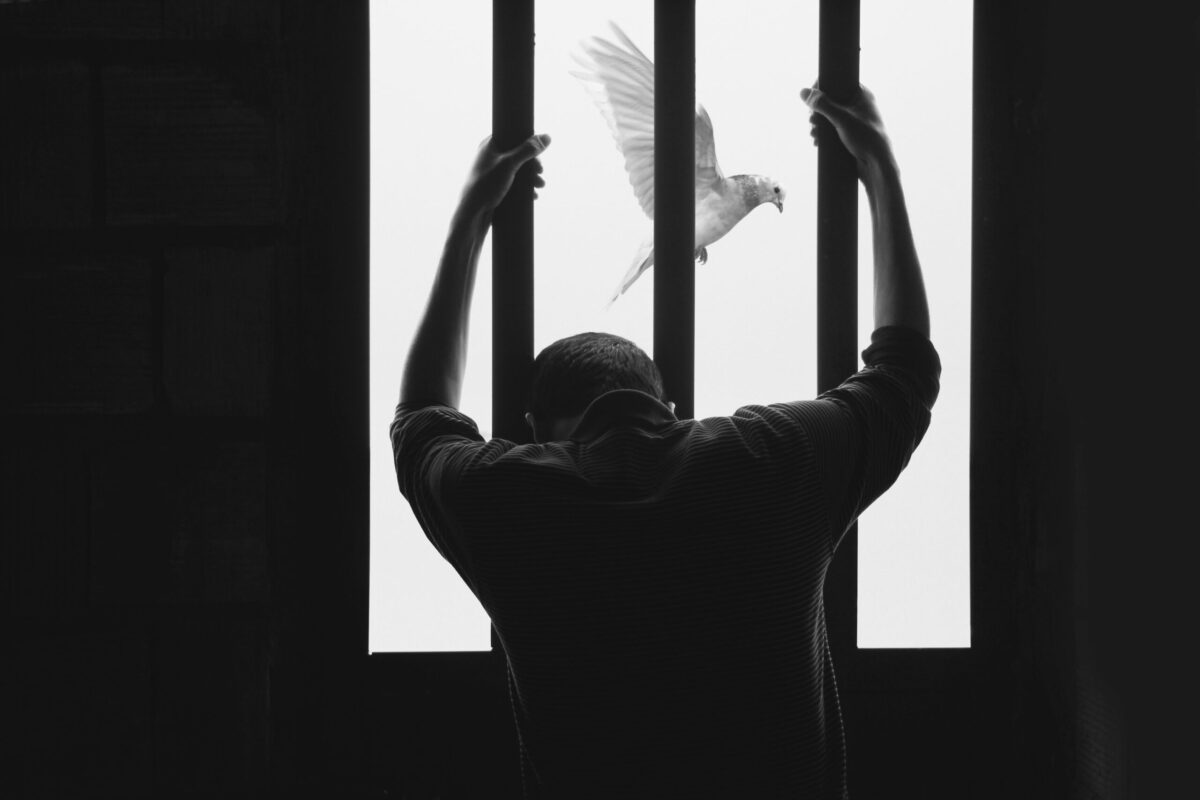California voters rejected Proposition 6, a measure aiming to prohibit slavery and involuntary servitude for prisoners, according to its proponents.
The margin between votes was not particularly close. As of November 18, with 94% of votes counted, 53% voted no — 7.5 million — with 46% voting yes, around 6.5 million.
The rejection of this measure means California will continue to impose forced labor on its most marginalized populations. The no vote comes amidst a sea of rejections of left-leaning policies in blue-state California.
Hyper Incarceration
“It feels like we’re stepping into a new era,” said Raj Jayadev, criminal justice advocate and co-founder of Silicon Valley De-bug. In an interview with Ethnic Media Services, he cited not only the failure of Prop 6, but the passing of Prop 36 — which imposed longer prison sentences on people convicted on drugs and theft charges — as inflection points in the state’s largely-progressive history.
Jayadev noted the 1990s era “Three Strikes Law,” and the “War on Drugs” efforts in California. “We are, I think, on the cusp of one of those: an era representative of hyper incarceration, of disproportionate penalties on Black and brown communities.”
“I think it was less about a logical political debate and more about a revelation of the utter dehumanization of those that are incarcerated,” said the noted social activist, who in 2018 received the MacArthur “genius” grant for his work with Silicon Valley De-bug.
Several other states, including Colorado, Alabama, Tennessee and Vermont, recently have banned forced labor in prisons. Some activists characterize the campaigns as efforts to wipe out a legacy of slavery. California’s measure moved forward after the state’s Reparations Task Force drew attention to the harmful effects of discriminatory policies against African Americans, reported CalMatters.
In an analysis of Prop 6’s rejection, The Mercury News quoted Larry Gerston, political science professor emeritus at San Jose State University, who said: “The ’yes’ campaign failed to explain to voters what the measure would actually do. When voters are confused, they vote no. Why would they vote for something they don’t understand?”
Overly Punitive System
But Jayadev believes such claims are not instructive. “That avoids confronting where California is, in terms of racial injustice and perceptions of those who are incarcerated. Whether it’s true or not, it moves us away from a larger examination of our state. We can’t really move forward if we say ‘hey, there’s some wordsmithing issues.’”
He suggested amplifying the voices of those who are incarcerated to bring awareness about how an overly punitive system affects them, their families, and their communities.
An amicus curiae brief developed by an alliance composed of the national ACLU, several ACLU state affiliates, and Maryland-based racial justice groups, stated: “Modern day prison labor descends from the enslavement of Black people. After the Thirteenth Amendment abolished race-based slavery, the criminal legal system was used to replicate its oppressive structural framework, through convict leasing, chain gangs, and forced ‘public works’ projects.”
Blacks and Latinos Disproportionately Incarcerated
The racist underpinnings in the foundation of the prison system translate to documented injustice today, and manifest as racial imbalance among the incarcerated, stated the brief.
There is clear discrepancy in the incarceration rates by race in proportion to the racial makeup of the US population. According to preliminary data provided by the Bureau of Justice Statistics, in 2022, 32% of persons sentenced to state or federal prison were Black, while 31% were white. 23% were Hispanic, 10% multiracial or some other race, 2% American Indian or Alaska Native, and 1% Asian, Native Hawaiian, or other Pacific Islander.
Constrastingly, as reported by the US Census Bureau, in 2023, Black people represented 13.7% of our nation’s population, while non-Hispanic whites represented 58.4%, Hispanic or Latino 19.5%, 3.1% multiracial, 1.3% American Indian or Alaska Native alone, and 6.7% Asian, Native Hawaiian, or Other Pacific Islander.
These data show there is a significantly disproportionate number of Black and Latino people imprisoned in relation to their size in the population. This is not because these populations commit crimes at higher rates than their white or Asian counterparts. Rather, they are unjustly treated within the criminal justice system.
Racial Bias in Policing
The UCLA Anderson Review published findings that Black neighborhoods are overpoliced. And the United States Sentencing Commission reported that Black and Hispanic people receive harsher prison sentences than whites arrested for the same charges. The Sentencing Project noted that law enforcement officers, prosecutors, and judges have and act on their biases against people of color.
It is reasonable to assume that many voters may not be aware of this background, of the extent of this injustice today. However, the language on the ballot is loud, glaring: people saw a motion to prohibit slavery and involuntary servitude and voted against doing so. It is notable that no argument against proposition 6 was submitted within the official voter information guide.
Fiscal Concerns
The Orange County Register’s editorial board published an endorsement against Prop 6, encouraging Californians to vote “no.” The op-ed argued that there is no slavery in California prisons, and that claiming such is “injurious” to true injustices such as overcrowding and solitary confinement.
The editorial board also voiced concerns regarding the economic impact of this proposition’s passing, citing a CalMatters statement. “Federal employment laws, including those on wages and benefits, might begin to cover inmates who are required to work.” They questioned where the money used to fairly compensate prison labor will come from.
Opponents also reason that labor will prepare prisoners for life after release, ensuring they don’t end up back behind bars.
“The justifications for this system echo the rationales used to justify earlier forms of racial oppression, dehumanizing people by insisting that exploitation illegal in any other context is for their own good,” noted the ACLU in its amicus brief.




